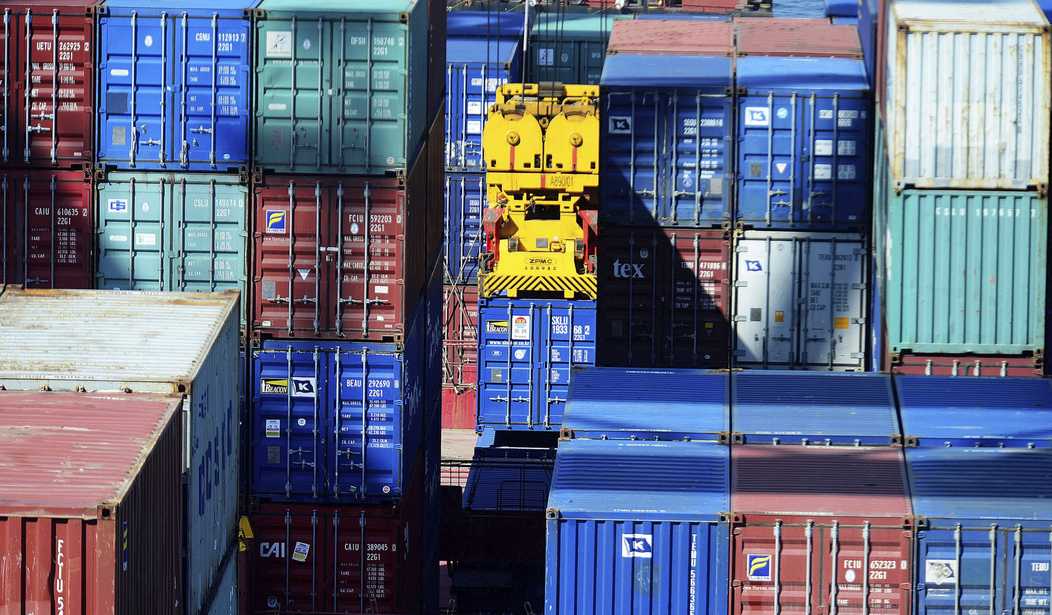As things stand, America is likely to lose the tech war with China. The stock market should be sending a message to President Trump. U.S. semiconductor stocks are down 20% in the past month, and the broad market has been in freefall for a week. This is a war we can win, by mobilizing American ingenuity to produce technology that will crush the competition. No-one ever won a war by trying to stop someone else from doing something. I’m an Always Trumper, and I want the president to win another term. But he’s risking the U.S. economy and his re-election chances on a poorly-conceived offensive.
Last year we produced just 10% of the world’s semiconductors, down from 25% in 2011 and nearly 100% in the Reagan era. We don’t produce any telecom gear to compete with Huawei’s best-of-breed products (we’re telling our allies to buy from Ericsson and Nokia, who also make their gear in China). We’re trying to stop the Chinese telecom giant from dominating the rollout of a game-changing new technology, but we’ve got no competing product. We might slow Huawei down by banning exports of U.S. technology–although I doubt we will slow it very much–but we can’t stop China from becoming the world’s dominant producer of high-tech products unless we rebuild our own high-tech industry.
The U.S. invented the integrated circuit in the 1950s and perfected CMOS chip manufacturing in the 1970s, making cheap, small, and powerful processors the basis for the modern digital economy. CMOS came out of RCA Labs with Defense Department R&D funding, under the direction of Dr. Henry Kressel, then head of RCA’s electrical engineering research. Last December, Dr. Kressel and I argued in a Wall Street Journal op-ed that the U.S. had to bring chip manufacturing back onshore, despite the enormous cost of doing so.
Just why has the trade war morphed into a tech war?
Telecom hardwire providers serve their national intelligence agencies. It would be naive to imagine that China’s giant Huawei Technologies, the world’s largest provider of telecom equipment, doesn’t have ties to its country’s intelligence service, as American officials allege. I’m sure of this, because that’s exactly what our National Security Agency did with Cisco, formerly America’s premier supplier of Internet routers and related equipment. The NSA installed “back doors” in Cisco equipment according to documents leaked to the public by renegade NSA consultant Edward Snowden. Yes, the NSA knows where your phone is, even when it’s turned off, and when it’s turned on, it can listen to your conversations. Whether it actually does or not is a matter of conjecture.
The U.S. intelligence community has led the charge against Huawei, claiming that if the Chinese company leads the global rollout in fifth-generation mobile broadband, China will be able to eavesdrop on the world. It isn’t quite that simple. The 5G signal is so dense, I am informed, that it permits end-to-end encryption of voice calls as well as data, with an unbreakable degree of complexity. It isn’t so much that China would be able to steal data, but rather that U.S. intelligence would lose its present advantage in signal intelligence.
Much as I fear abuse of power by U.S. intelligence, and suspect “deep state” participation in an attempted coup against President Trump, I want the United States to maintain its advantage in electronic eavesdropping. The problem is that we don’t produce any telecom hardware. Zilch. We used to. Cisco was the market leader, but has pretty much abandoned the hardware business (it makes more money in software).
The U.S. economic expansion is at risk. In April the purchasing managers’ surveys produced by the research organization Markit fell off a cliff. At barely above the 50 mark, they show that almost as many businesses were contracting as were growing. The trade war is partly to blame: Businesses have postponed capital investment until the shape of global supply chains is clear. The Atlanta Fed is now projecting 2nd-quarter growth at just 1.3%, and JP Morgan is predicting 1%. That’s a big drop from the preliminary 3.2% number for the 1st quarter (and that was probably inflated by fluff). Bond yields are in free fall, at their lowest level in 17 months, as investors anticipate economic weakness.
Cutting off technology shipments to Huawei may not have the desired effect. Huawei already produces its own high-end chips for smartphones and data processing, and has been preparing for the worst for a long time. The result of the tech war might be a global round of predatory price cuts that will push U.S. chipmakers out of the Asian market that accounts for most of their revenues. When the dust settles, China may end up with a dominant position in semiconductors.
We’ve licked this problem before, when John F. Kennedy set the Apollo moonshot in motion and Reagan led a massive, tech-intensive defense buildup. We can do it again. But what we are doing now will sooner or later be a losing strategy.











Join the conversation as a VIP Member